About the Book
the book is available in multiple languages English, French, Mandarin and Spanish (Coming soon)
In the shadow of loss, one room becomes the stage for a timeless dialogue between the past and the present.
ROOM 17
The Story
Room 17 follows the emotional journey of a son returning from Boston to confront the inevitable farewell of his beloved mother. Set against the backdrop of a stifling city, this poignant narrative explores themes of separation, memory, and the eternal bond of filial love. Every page resonates with the quiet power of remembrance, inviting you to experience the bittersweet beauty of life’s transient moments.
What Readers Are Saying:
- “A heart-wrenching yet beautiful exploration of loss and hope.”
- “Marly’s prose transforms sorrow into art, capturing the essence of our shared humanity.”
- “An unforgettable journey that redefines what it means to say goodbye.”
Dive Deeper
In this moving memoir, Raphaël reminisces about the precious moments shared with his mother—her radiant smiles, infectious laughter, and the profound love that shaped his very being. As he reflects on life’s fleeting nature, he reminds us of the importance of cherishing every heartbeat and every shared glance. The story is thoughtfully interwoven with literary and philosophical quotes, each one adding depth to his meditations on love, loss, and the inevitability of farewell.
Room 17 is a celebration of memory and an invitation to reconcile with the past. It challenges us to find hope and resilience in the midst of grief and to honor the enduring bonds that define who we are.
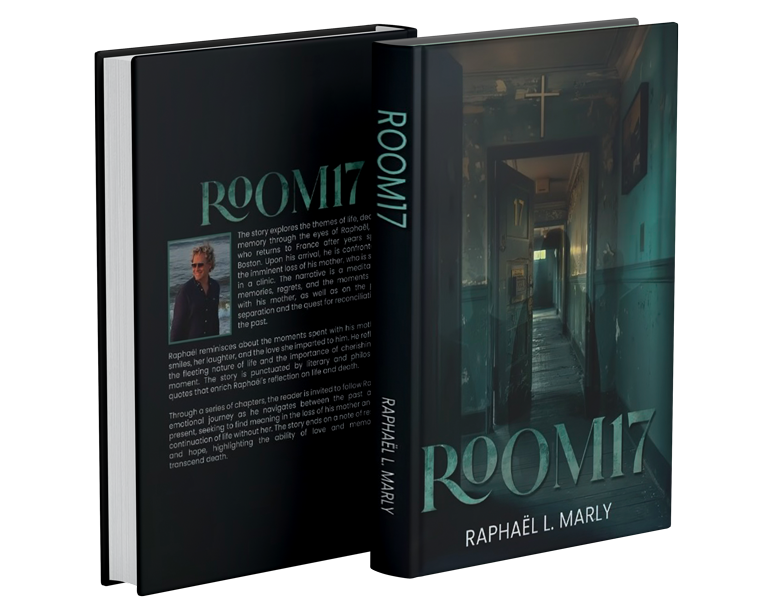
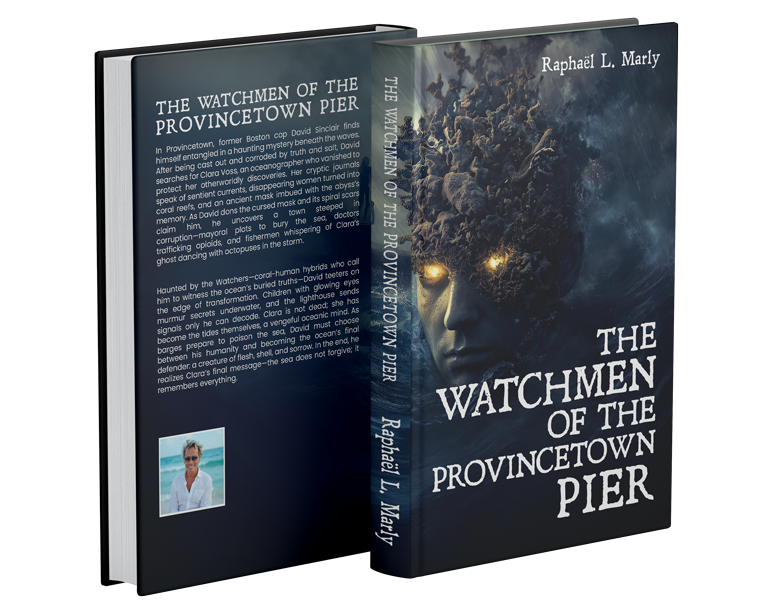
The Watchmen Of The ProvinceTown Pier
In Provincetown, the tides always return what has been cast into the sea-especially secrets. My name is David Sinclair, an ex-Boston cop with lungs corroded by lies and salt.
I’m chasing the shadow of Clara Voss, the oceanographer who chose to become a ghost rather than let her discoveries be silenced. Her journals, written in diatom ink and jellyfish tears, speak of currents that sing of vanished women transformed into living reefs and of an ancient mask whispering truths that tear souls apart.
Mayor Evan Grey wants to cement the ocean floor, corrupt doctors smuggle oploids in rock salt containers, and the fishermen swear Clara dances with octopuses on stormy nights. Me, all i have left are the spiral scars under my skin and this cursed mask grafting the abyss’s memory onto my bones. The Watchers-those half-human, half-coral guardians-call to me. They say the ocean has chosen me to bear witness.
But to what? The cement-laden corpses dumped into the Stellwagen trench? The children with fluorescent eyes whispering Morse code underwater? Or the weightiest truth of all Clara isn’t dead. She sacrificed herself to merge with the plankton, becoming the vengeful consciousness of the tides Now, the Wood End lighthouse blinks messages that only a Flayed One like me can decipher. My veins sprout into tentacles; my dreams reek of iodine and past agonies. And when Grey Marine’s barges come to spill their poison, ril have to choose: die as a man or be reborn as a monument of flesh and shell, the last bastion of an ocean ready to swallow the world to cleanse it.
The Watchers are not heroes. We are walking tombs, embodied funeral songs. Clara knew this. That’s why she left me the worst truth of all: The sea does not forgive. It archives.
About Book
The Watchman of the Waterways in Provincetown
The Watchmen Of The ProvinceTown Pier
In the sound of the year, the tide always brings back the East Gate that was jumped into the sea, especially secrets. I’m Hill David Sinclair Brown, a former Boston police officer, who was invited to the Lord and sea salt to erode the commandery. I’m chasing the shadow of Clara Vos—————— then you choose to be a ghost rather than let your hair be banned as an oceanographer. Her diary, written in fruit fish juice and jellyfish wine, tells the song of ocean currents, the lost Three Kingdoms swallowed by quicksand, and the secrets of an ancient whispering truth that can balance the soul realm. Gray tried to blockade it with cement but failed, and the failed doctors secretly performed operations on the class or at the breeding site, and the fishermen borrowed money from him on a stormy night. And I, with only the spiral-shaped blood on my body, and the cursed music of Fei Dao carving ghost memories on my bones. Watchmen, workers, old testament protectors—they’re biting me. They said, “The sea has chosen me as a witness…………… But witness what? The corpses that were cemented white and sunk into the bone trench? The whispered stories of those “glowing children”? Or is it the truth that the stretch of the deep awaits us sinking? If Clara were still alive, she would have sacrificed herself to merge with the plankton and become the revenge of the sea. of consciousness.
Right now, the Cape Wood Lighthouse is shining with a message that only someone like me who is more detached from humanity can decipher. My power has turned into a beard, my arteries are overgrown with ice and thorns, and when the hatred of the South Sea is pouring down on them, I must make a choice: whether to continue to be a human being, or to be a life of flesh and shells, to be the last of the sea’s treasures, to purify the world before it devours the world. Watchmen are not heroes. We are walking consciousness, and we are not the city of rituals. Clara understands this. This is the truth about the most dramatic match she left me behind: People will forgive. It will record one.
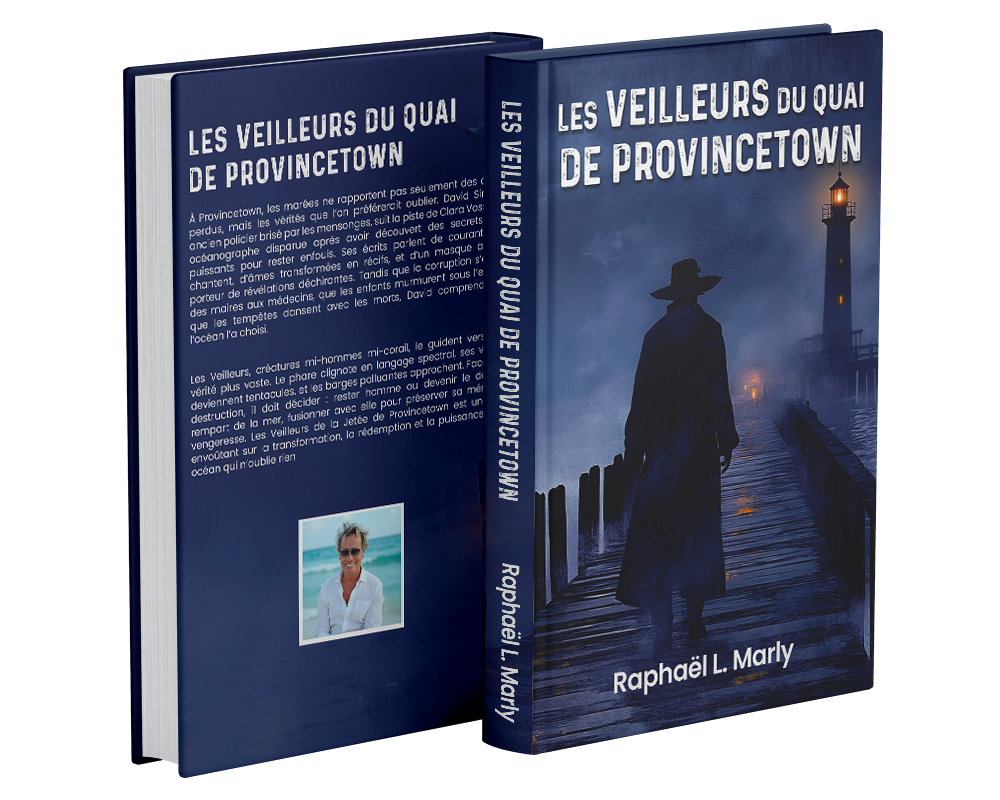
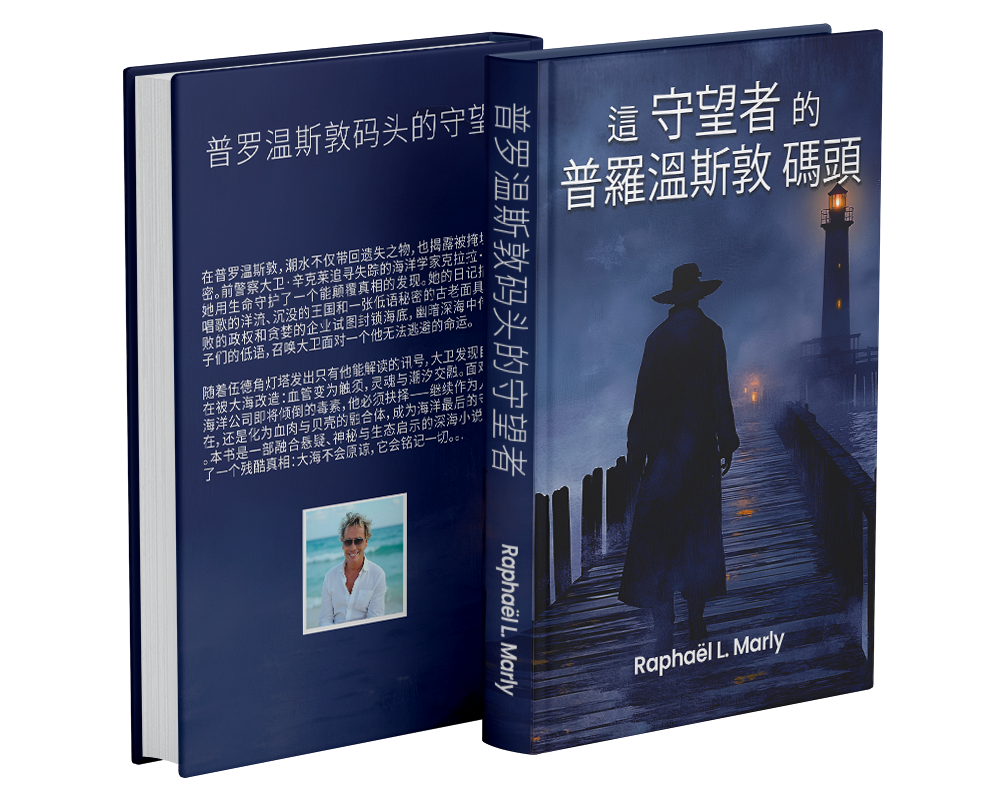
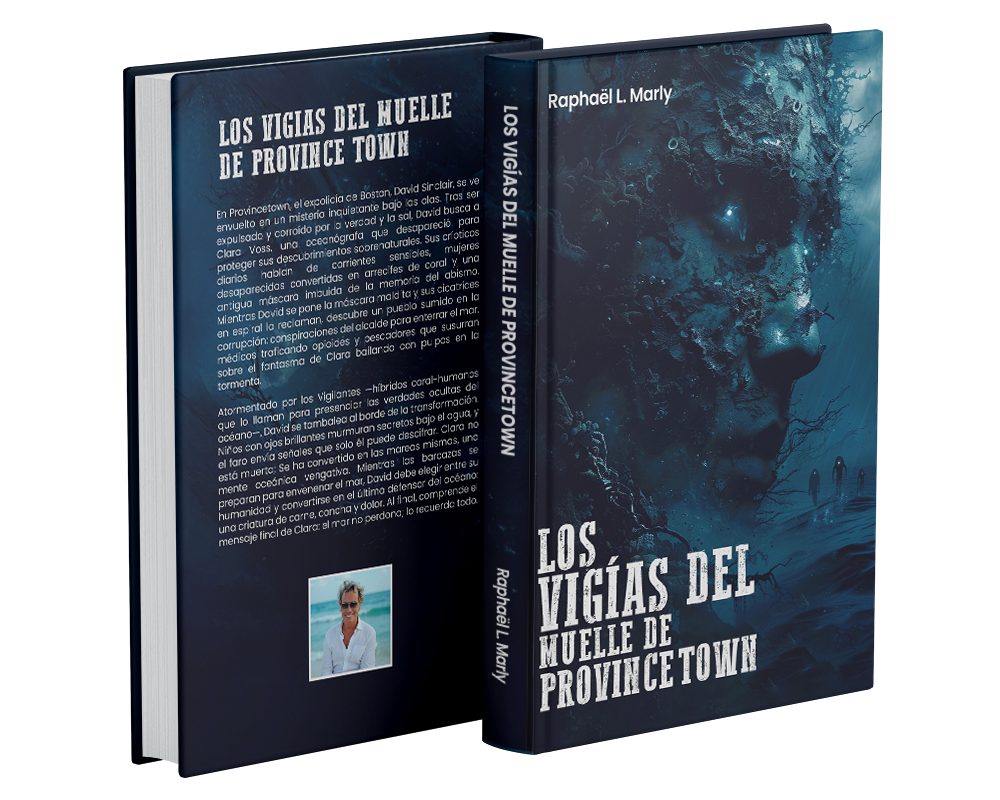
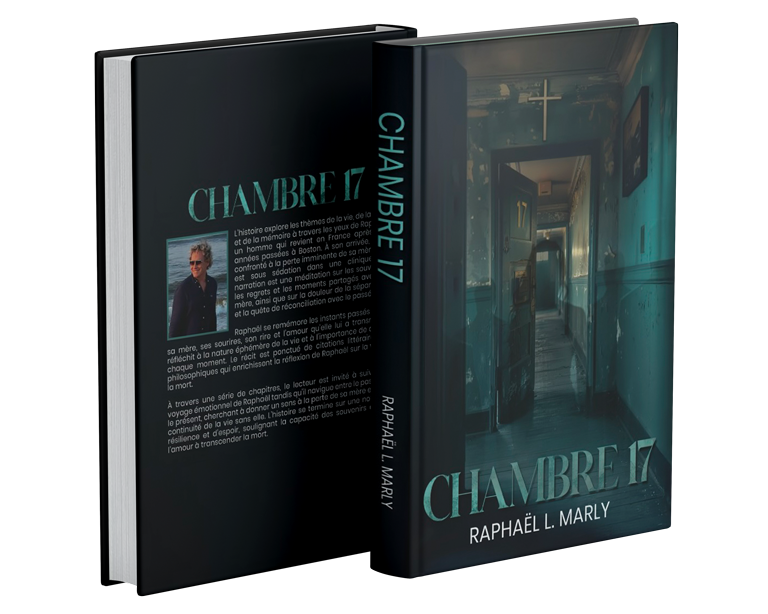
About Book
ROOM 17
The story explores the themes of life, death and memory through the eyes of Raphael, a man who returns to France after years in Boston. When he arrives, he is confronted by the imminent door of his mother, who is sedated in a clinic. His narration is a meditation on memories, regrets and the moments shared with his mother, as well as the pain of separation and the search for reconciliation with the past.
Raphaël remembered the moments spent with his mother, her smiles, her laughter and the love she had passed on to him. He reflects on the ephemeral nature of life and the importance of cherish every moment. The narrative is punctuated by literary and philosophical quotations that enrich Raphael’s reflection on life and death.
Through a series of chapters, the reader is invited to follow Raphael’s emotional journey as he navigates between the past and the present, seeking to make sense of the loss of his mother and the continuity of the via without her. The story ends with a noto of resilience and hope, highlighting the ability of memories and love to transcend death.
About Book
ROOM 17
The story explores the themes of life, death and memory through the eyes of Raphael, a man who returns to France after years in Boston. When he arrives, he is confronted by the imminent door of his mother, who is sedated in a clinic. His narration is a meditation on memories, regrets and the moments shared with his mother, as well as the pain of separation and the search for reconciliation with the past.
Raphaël remembered the moments spent with his mother, her smiles, her laughter and the love she had passed on to him. He reflects on the ephemeral nature of life and the importance of cherish every moment. The narrative is punctuated by literary and philosophical quotations that enrich Raphael’s reflection on life and death.
Through a series of chapters, the reader is invited to follow Raphael’s emotional journey as he navigates between the past and the present, seeking to make sense of the loss of his mother and the continuity of the via without her. The story ends with a noto of resilience and hope, highlighting the ability of memories and love to transcend death.
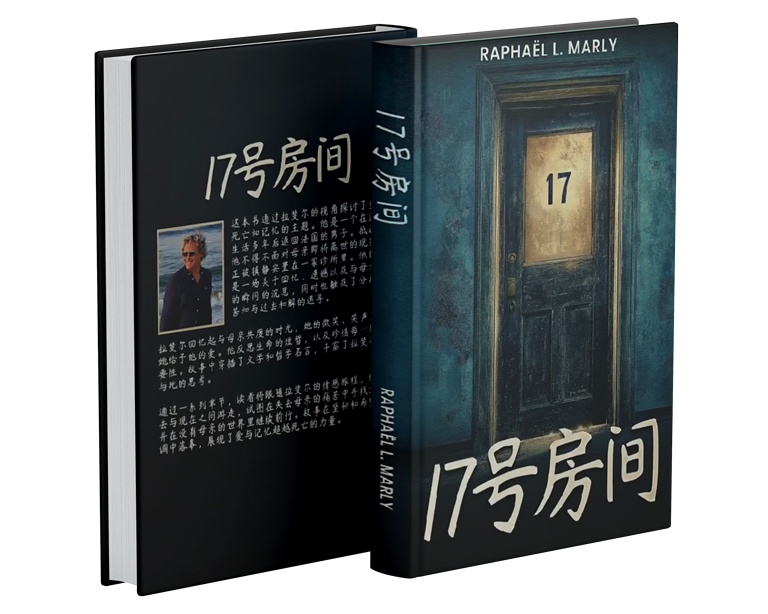
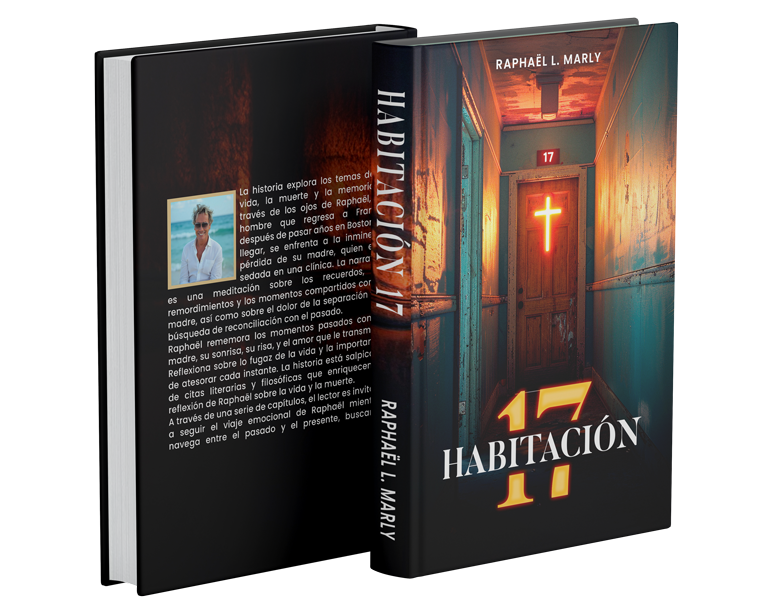
About Book
ROOM 17
The story explores the themes of life, death and memory through the eyes of Raphael, a man who returns to France after years in Boston. When he arrives, he is confronted by the imminent door of his mother, who is sedated in a clinic. His narration is a meditation on memories, regrets and the moments shared with his mother, as well as the pain of separation and the search for reconciliation with the past.
Raphaël remembered the moments spent with his mother, her smiles, her laughter and the love she had passed on to him. He reflects on the ephemeral nature of life and the importance of cherish every moment. The narrative is punctuated by literary and philosophical quotations that enrich Raphael’s reflection on life and death.
Through a series of chapters, the reader is invited to follow Raphael’s emotional journey as he navigates between the past and the present, seeking to make sense of the loss of his mother and the continuity of the via without her. The story ends with a noto of resilience and hope, highlighting the ability of memories and love to transcend death.